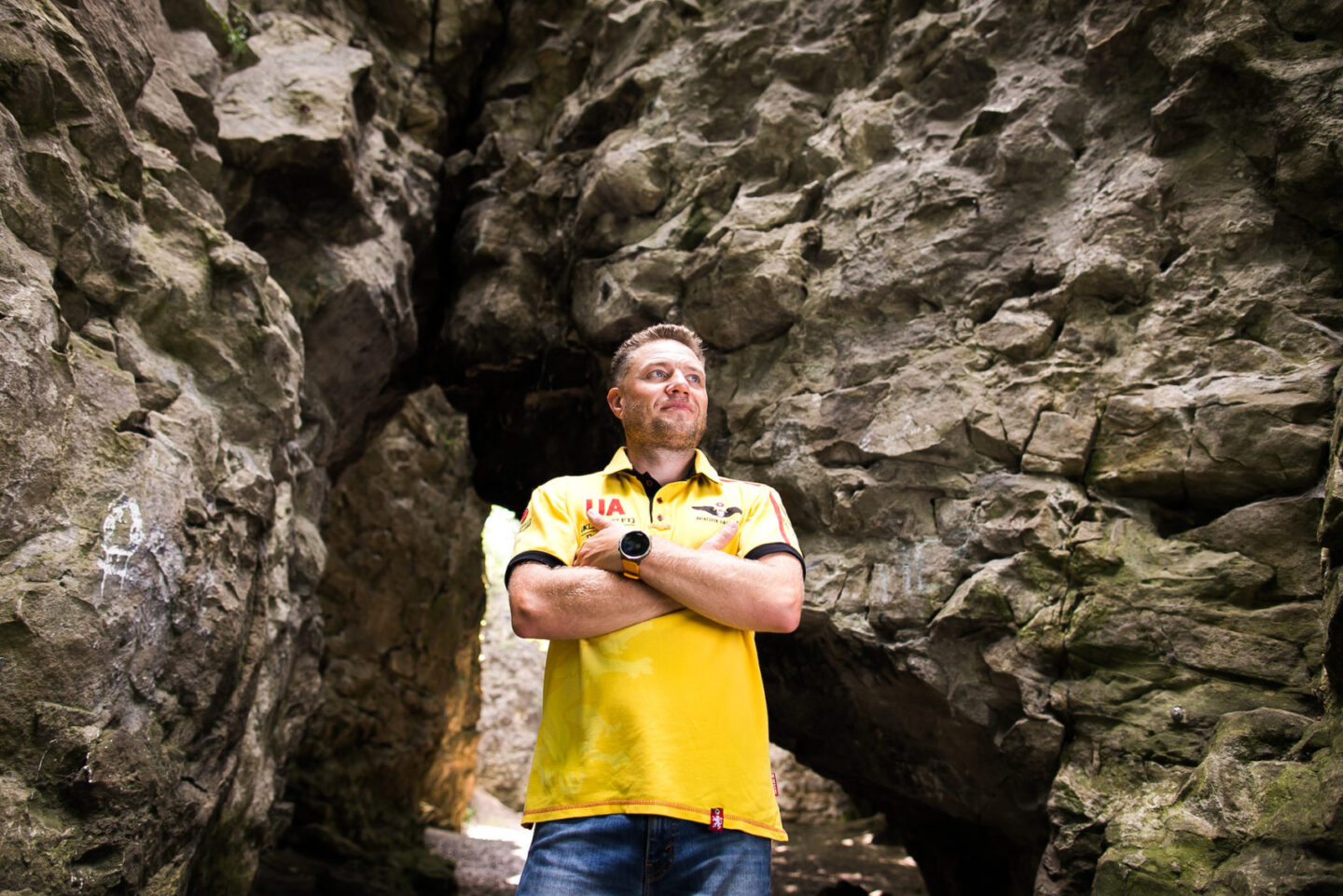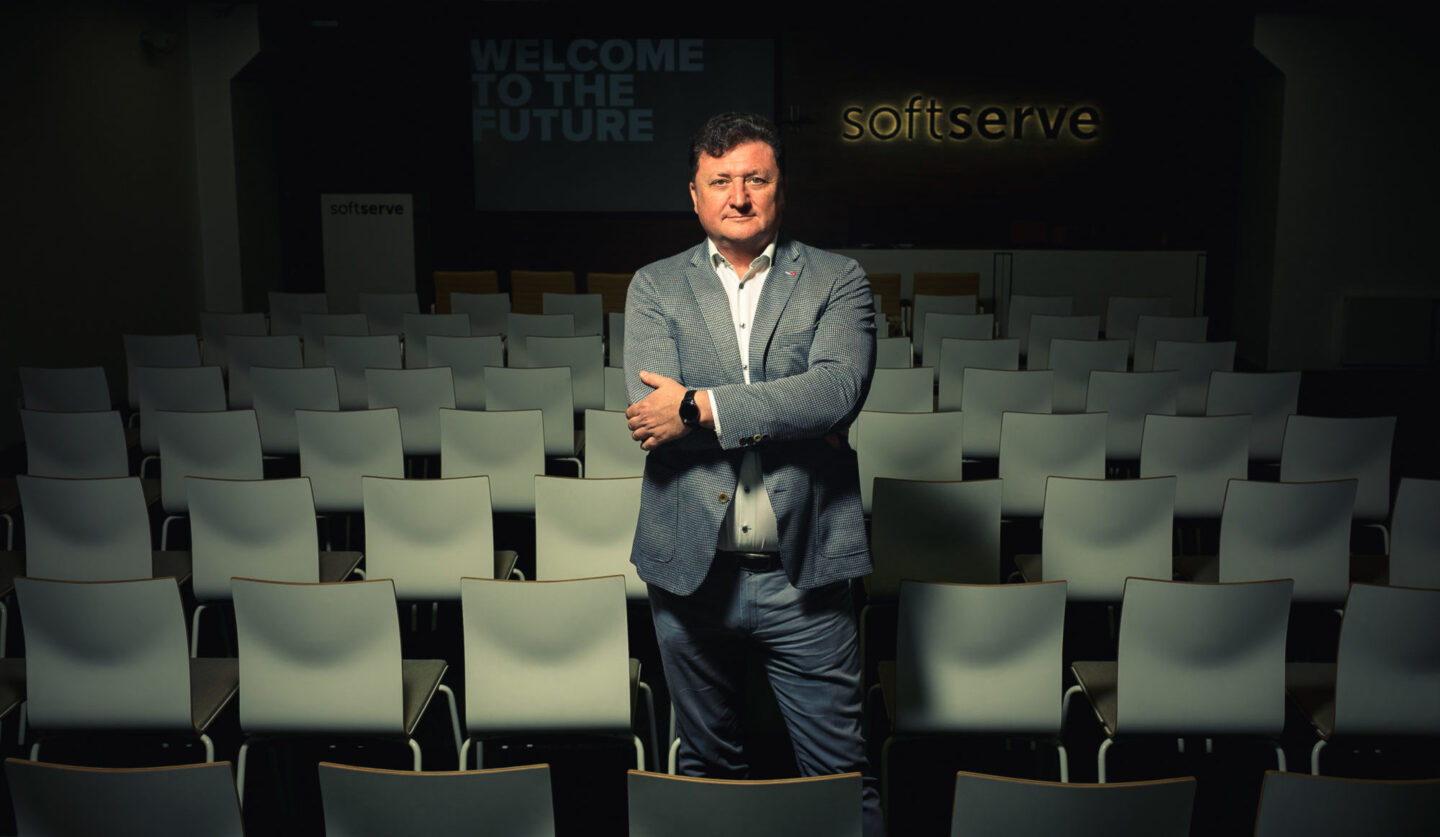“Technology of success” — a series of interviews with leaders of the most ambitious IT companies in the country. Throughout the year, together with Lviv IT Cluster, we will tell you about entrepreneurs and heads of tech companies in Ukraine, trying to better understand the people who are driving the country forward.
Oleksandra Alkhimovych, Managing Director of Luxoft Ukraine talks about the leadership of the future, her company’s big idea, and talent development.
You are an example and a role model for many people, girls and women in particular. In my opinion, there’s a significant lack of role models, so you occupy a position of responsibility. What’s your opinion on this?
I completely agree that there is a lack of role models in Ukraine. But that doesn’t mean they don’t exist — often we simply don’t know about them. One can meet them at industry events and small meetups.
Talking about the responsibility, it’s not the responsibility for the community, but rather for yourself. It feels right when you look a few years back and realize that you don’t regret the decisions you made. Even complex situations, above all, create an urge for development.
We’ve already conducted about 15 interviews within the Technology of Success project. However, it’s only the third talk with a company leader who is a woman. Why do you think there are not many women in top management positions?
I’ll start from afar. We started our conversation from the topic of leadership. I have been interested in this topic for a long time now. Not too long ago, I was fortunate enough to attend a course at Harvard. The company has given me the opportunity to take part in the “High Potential Leadership Program” for “Executive Education”. The program’s purpose is the development of competencies, capabilities, and behaviors that are vital for a modern leader. There were around one hundred participants in our group. We had a unique opportunity to learn, communicate, and integrate into the atmosphere of leadership.
We all tend to compare ourselves with someone or something. I was curious to learn the difference between international, global role models and Ukrainian leaders. During the program, I understood that one of our key differences is that Ukrainian leaders are cool crisis managers, we are good at solving complex short-term tasks. While our foreign colleagues can offer two or three solutions for complex short-term tasks, they can easily create a strategy for 10-15 years as well. Our brain simply refuses to think about such time periods. (Smiles)
I think it’s because we live in an environment where everything is constantly changing. We live in 3- or 6-month periods. Thinking forward, focusing on vision, and the ability to think strategically are what we need to learn.
We live in 3- or 6-month periods. Thinking forward, focusing on vision, and the ability to think strategically are what we need to learn
Secondly, the world needs global leaders to be risk managers. And they can be. Risk assessment, analytics, finding more development options… How do we usually do this? An idea arises and we quickly join the process and start to work on its implementation. And already in the process, we begin to plan something. This often doesn’t give us the expected result. This is an additional development area we should work on.
The third thing I understood: networking — the ability to build a broad network of useful business contacts — is a trend one also needs to learn. It is important to be able to build relationships, maintain and develop them.
A leader is a visionary. To be a visionary, one must understand what will happen in the future. And for this you need to read, travel, observe and analyze a lot.
Fourth — the ability to work with representatives of different cultures. Boundaries are getting blurred, and the world is becoming more globalized. By the way, not only business executives but also representatives of other fields — healthcare, education, religion, military, and government participated in the group as well. Because everyone understands that education, healthcare, and military are the three pillars the state stands on.
The fifth thing — and here we are approaching the topic of women’s leadership — about 10% of the group were women, which indicates that not only in Ukraine but also internationally, the percentage of women in management positions is still small. Therefore, supporting initiatives that encourage women engage in business is a global challenge.
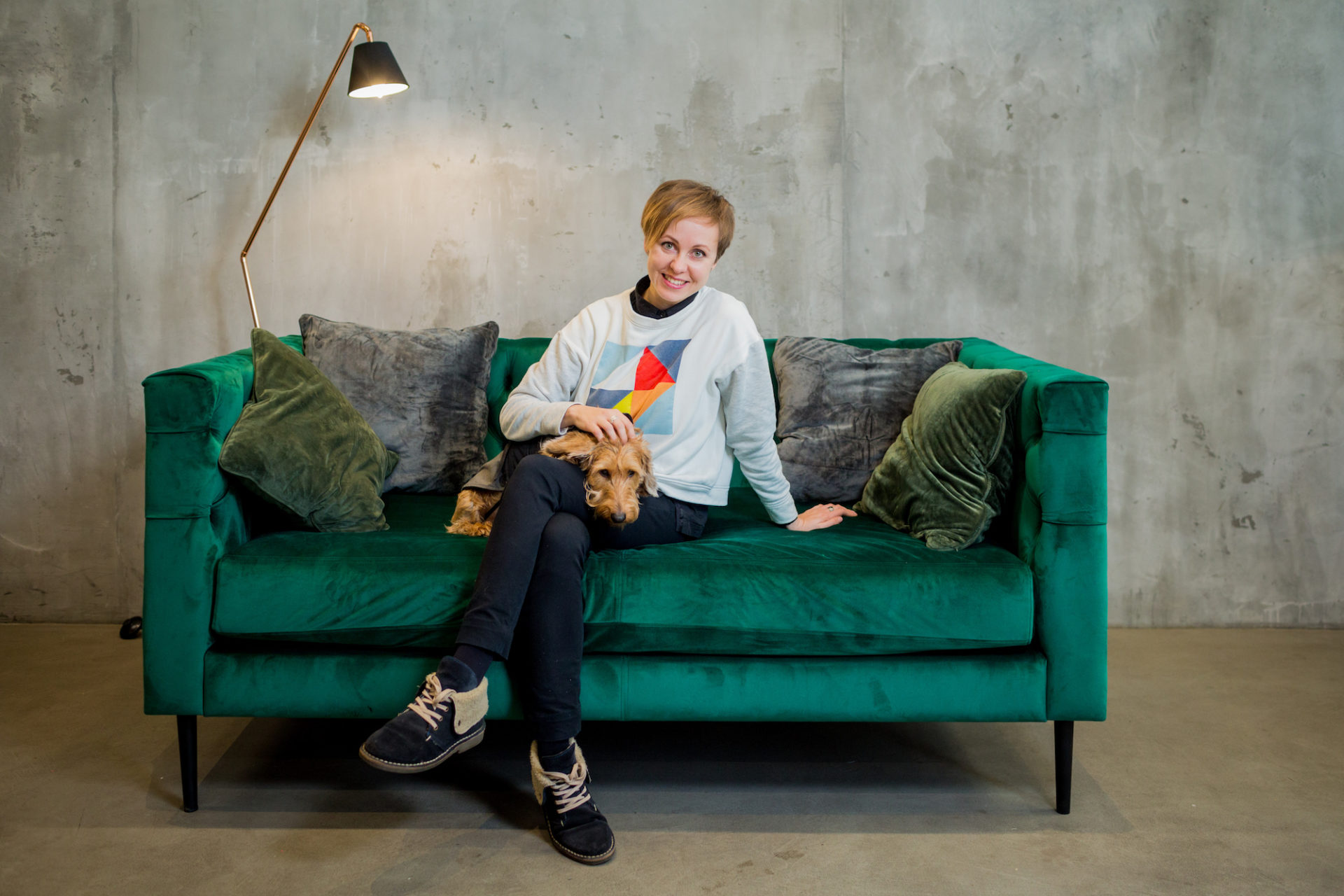
…Going back to your question, I believe that the number of women in leadership positions is actually getting bigger. We are trying to investigate this issue at the Women’s Leadership Program of the Ukrainian Catholic University, and in the STEM Girls program, where we work with girls who are high school students. Of course, there is no difference between male and female leadership. There are certain limitations that hinder this development.
In 1905-10, women were able to hold positions in only three places: the school, the post office, and the telegraph office. Only in these three areas one could build a career. If you look at the press of the time, the ideal woman looked like this: a mother, a housewife, with a low level of education. And in fact, this image was presented as an archetype, which was followed by women, because society demanded so.
We often think that stereotypes don’t apply to us, but they exist and create some kind of pressure. Let’s imagine a woman who earns more than her husband, or a woman who spends 50% of her time on business trips…Often, these descriptions are not compliments but cause disapproval. Therefore, we must work with cultural change and implement programs that support this movement.
The second program in which I have had the opportunity to participate and help is “She Exports”. This is a program created by the Export Promotion Office under the Ministry of Economy and Trade of Ukraine. Our goal is to teach and inspire women who are planning to open or already have a business and want to scale it not only within Ukraine, but also on the global arena. This gives us a possibility to talk about economic investments and about the development of women.
From an economic point of view, there is a large number of unemployed women in Ukraine, and for us, it is a huge waste of potential. Therefore, we are talking not only about leadership, but also about employment and human capital.
Please, tell us how your personal story began. Where were you born? Where did you study? How did you become the person you are now?
I was born in the Kharkiv region. I decided to study in Dnipro because I liked and still like this city. I think it is the best city in the world. (Smiles) I dreamt of working in the banking industry, but didn’t pass the exams. So, at the academy, I was offered to go to a specialty which had a shortage of students. This specialty was called “Human Resources Management”.
I didn’t know much what human or “labor” resources meant at the time, but I had no choice. The dean of the faculty said if I study well, then I could transfer to the “banking business”. I agreed, and so my career began with a topic that was called “labor resources” back in the day.
I am pleased that today we do not use the word “resources” when it comes to people. We have evolved to using the term “human capital,” and now we talk about talents
I am pleased that today we do not use the word “resources” when it comes to people. We have evolved to using the term “human capital,” and now we talk about talents. For 18 years, I have been studying personnel management — it has become my profession. I believe that it’s a profound science because people are extremely versatile and complex when compared to technology. And there is a lot to learn about how to reveal the potential and talents of people.
Your story is also interesting because you came to the industry from HR. Usually, it happens that leaders of IT companies in Ukraine have a developer or engineering background…
HR is an economic discipline. And management of any business is also an economy. If you understand how to manage a business from a financial and economic point of view, you can be the leader of any company.
I worked in the banking industry, I started my career in production where I worked for five years, I have been in the field of education for a while, and now I work in IT. Of course, there is industry specificity, but I cannot say that the management model is very different.
The success factor is in understanding the key processes: operating models, strategies, business planning, finance, customer service, and human resources management. These are the core competencies for any manager, regardless of the business.
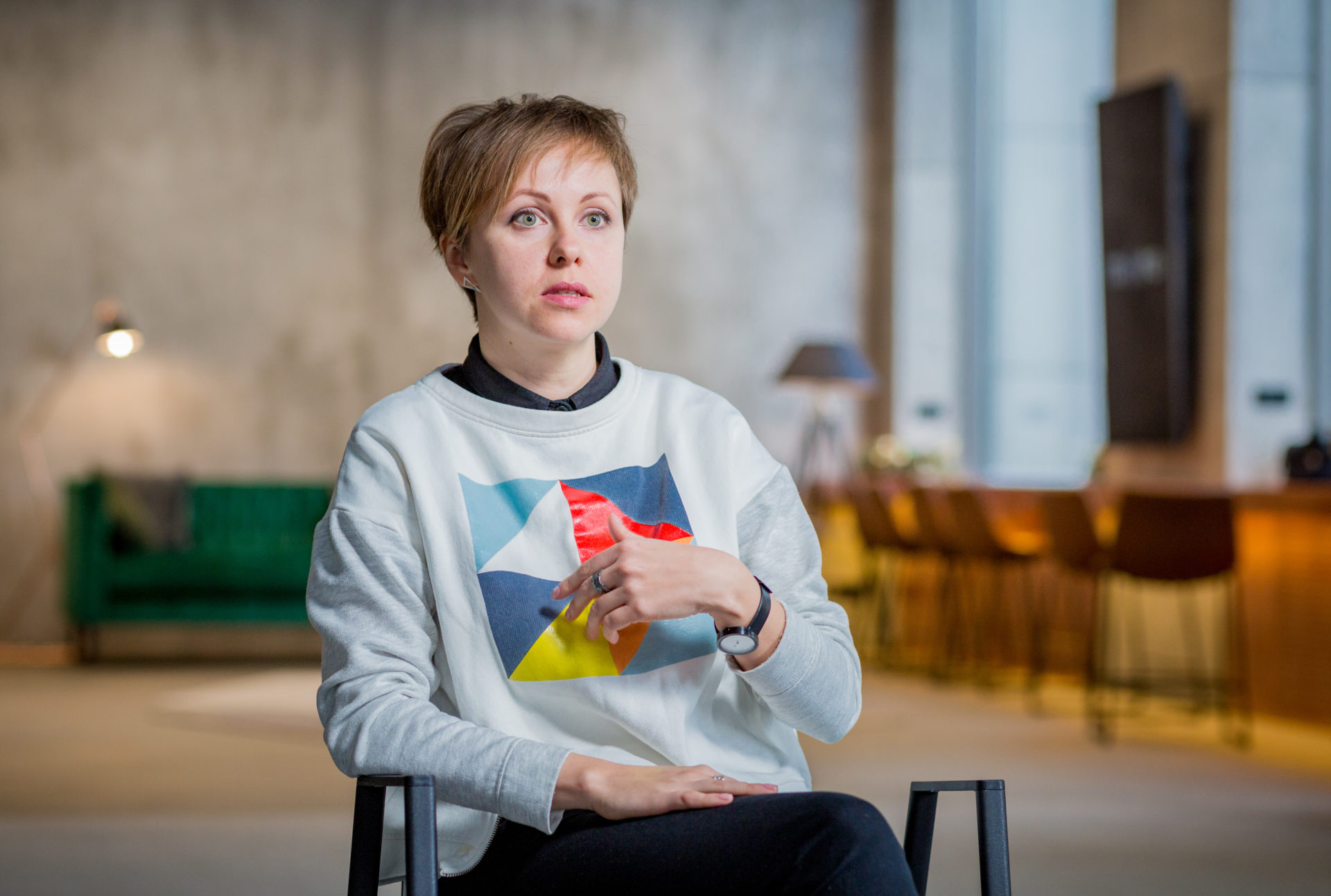
Let’s talk about your career at Luxoft. When did it start?
As I mentioned before, I worked in a management position at a production facility, but at some point, I decided to change my industry to something more innovative. Of course, it was IT. I deliberately decided to switch to this area even though I had no such experience.
For some time I worked as an HR Manager to gain a better understanding of the industry and people. After several years in HR, I was invited to lead the Luxoft office in Dnipro. Thanks to the cooperation of our team, we were able to build the largest IT company in the region over a few years. When I joined Luxoft, the company employed 150 people, and a few years later we reached 500 employees.
We did a lot of interesting things then: projects that were aimed at the development of IT specialists, professional orientation, and the involvement of students in cooperation with universities. It was also important for us to show Dnipro to our clients who are representatives of global corporations, so we did that too.
Luxoft believed in me, but a certain credibility loan meant a high level of responsibility for me. It stimulated me to work at my maximum. After we achieved our goals, I was offered the chance to move to Kyiv. And for several years already, I have held the position of managing director.
How would you describe the company today?
Luxoft is a dynamic, results-oriented company. It’s a company where the fulfillment of obligations and the building of mutual relations is an integral part of our values. Our highlight is that we are able to deal with any difficult case with a sense of humor.
If you add quality characteristics, I would say that Luxoft employees are the people who can “run long distance”: on average, professionals work at the company for 7-10 years. They are constantly learning, looking for something new and innovative, and they are not afraid to make mistakes and sincerely express their thoughts.
If we talk about Ukrainians in general, I think that openness is our advantage. If we do not like something, we are ready to discuss it and suggest ways to solve it.
What is the big idea of Luxoft?
The main idea is to change the world for the better. And, frankly, this is what stimulates our active work every day. Because if you are just a cog in a big machine or system, it is not interesting. But if you see how your decisions improve life in general, save natural resources, or lead to the development of safer means of transportation, you realize that you have partly touched something bigger.
The second big idea is to exceed our clients’ expectations. It’s about the added value when you create a wow effect. It’s a challenge because it is necessary to deeply understand the client’s business, constantly learn, to be at the intersection of know-how, and to be able to risk and implement new ideas.
Speaking about our projects that illustrate it — MBUX is one of the first ones that come to my mind. In 2018, famous German car manufacturer Daimler AG presented the Mercedes-Benz User Experience at CES exhibition. It’s an infotainment AI-system, which is already installed in all new Mercedes-Benz Class A cars as well as in GLEs and the new EQC electric cars. Together with Daimler professionals, Luxoft developed the platform for this system.
The Artificial Intelligence in the MBUX is tailored to the driver and passengers. For example, it explores where you like to eat, and offers similar locations when you just say “Mercedes, I’m hungry,” or it offers to call your partner on the way home from work, defining your habits according to the location. Or it reminds you of an important call and is ready to connect you to the call directly from the car. In a few years, we’ll get used to such things.
Please, tell us about Luxoft’s most interesting projects.
We work in three lines of business: Finance, Automotive, and Digital Enterprise. It often happens that specialists from different countries where Luxoft offices are located work on one project. So, we don’t differentiate between projects done in the Ukrainian office, the German one, or the Polish one. But there are many projects that are either fully or partially developed and implemented by specialists from Ukraine.
In the Finance line, we work with global leaders in the banking and finance industries. These are big, complex, long-term projects. A project may be a solution for one of Switzerland’s largest online banks or systems for a large American bank. Moreover, we introduce a variety of modern technologies such as blockchain.
This technology has made a lot of buzz recently, and we already have expertise in it. Luxoft’s headquarters is located in the Swiss city of Zug, where the so-called Crypto Valley is located. It’s one of Europe’s hubs for cryptocurrency and blockchain, and we have co-founded it. Luxoft sees strong potential for blockchain solutions to be implemented in completely unique areas. It’s a technology that is now supported by government agencies, businesses, and other partners.
One of the solutions we have developed for the city of Zug in association with local authorities is a blockchain platform for voting. The system has already been successfully tested. In my opinion, it’s an effective solution that speeds up the voting process and makes it more transparent and secure. People don’t have to go to the polling station, the data is processed faster, etc.
Our Ukrainian office also has a few projects where blockchain is used. The first one is a database of all cryptocurrencies with very short iterations. It is used by individual entrepreneurs and business to calculate taxes at the end of the reporting period. For a large US energy consortium, we created a product for optimizing document flow, which also uses this technology.
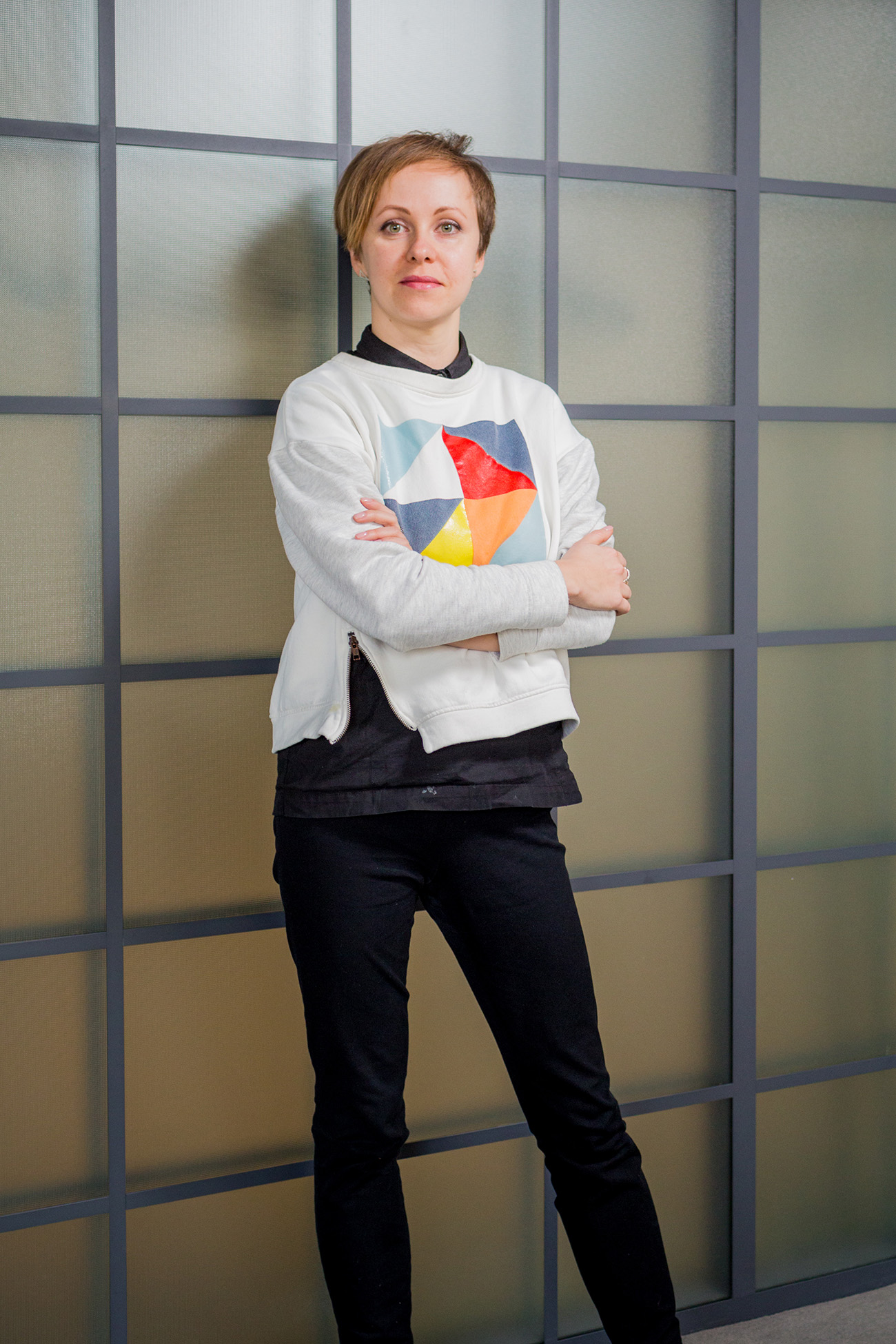
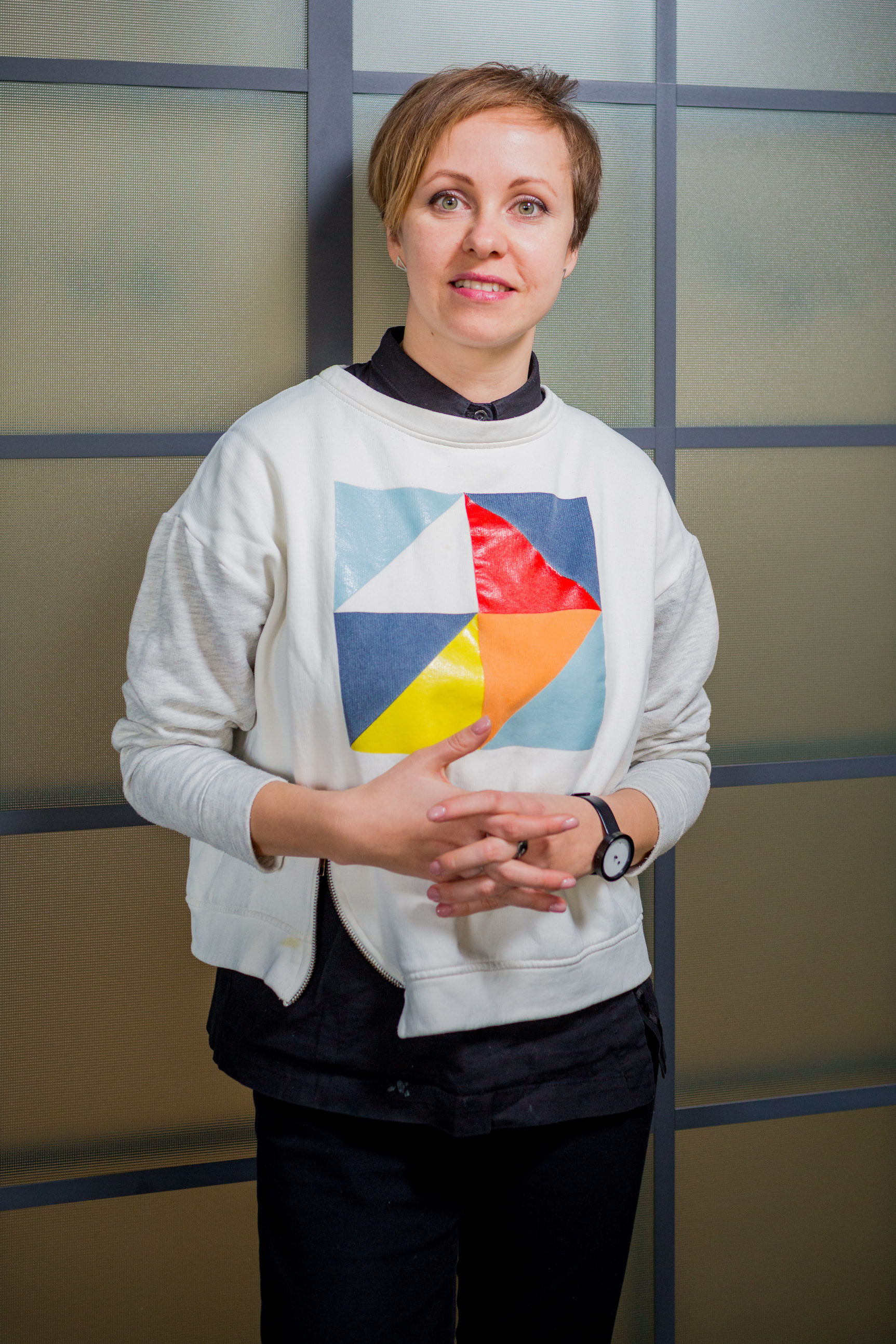
As for Automotive, there have been a lot of developments for the leading Tier 1 car manufacturers and suppliers. This includes the already mentioned Daimler AG with which we have opened an R&D center in Berlin. Together we are developing innovative technologies for the new generation of cars. We are working on navigation and infotainment systems. Many automotive specialists in this team are from Ukraine. This also includes the AUTOSAR consortium, together with which we are developing a platform for an autonomous car. We are a part of all these innovations. Luxoft currently has Ukraine’s largest software engineer team in Automotive.
Digital Enterprise is a mix of different business areas, including media, travel, energy, and agribusiness. Among the clients are the world’s largest gas and oil companies, global energy market players, and media holding companies.
I can talk a lot about our projects because this is what Ukrainians are creating for the global market. These are things really changing our present and future. Unfortunately, we have NDA contracts with most of our clients. But I dream of being able to show what we’ve created not only to our clients.
It’s so cool that you speak about all these cutting-edge projects.
Being innovative is rather common for Ukrainians as a nation, and there’s a potential for projects like these. Why? The focus on innovation is present in countries with horizontal hierarchical structures. Ukrainians don’t like to obey and have personal opinions on every question.
What’s innovation? There are three key elements that help differentiate innovation from any simple idea. First of all, the idea has to be new. Secondly, it should bring some benefit to society. Third, it must be recognized by society. Because we can generate a million useful ideas, but if society does not accept any of them, they are not innovative.
We have the ability and potential for innovation. But there is still a need for infrastructure with which these innovations can be developed and used
We have the ability and potential for innovation. But there is still a need for infrastructure with which these innovations can be developed and used. This is not enough. If we talk about leadership, then companies need to create an atmosphere of trust in which innovative ideas are born. I think that, for the country and for our company, this is also a zone for development.
Why should I, as a potential employee, choose Luxoft? What, in your opinion, attracts the youth?
I’ve been working at Luxoft for over seven years. During this time, I’ve never heard a “no” to any issue I came across. If I needed help, advice or support, I’ve always received a positive answer. And this can only mean that Luxoft has a very open culture.
Secondly, everyday here you’re expected to become better. You compete with yourself on a daily basis.
The third thing is that there’s a broad network of projects, roles, and vacancies. If your role or technology seems boring, the company offers an opportunity to change the project or even move to another country.
Last but not least, there is a chance to combine work and study. Moreover, you can do this within the company. We offer training sessions to help technical employees deepen their expertise in certain directions or gain completely new knowledge and skills. Separately, the company set up programs for developing leaders. Specialists of all areas and management levels can take part in such programs. It is very cool when the company’s top managers join such initiatives and share their success stories and experience. For many employees, top managers become role models and offer practical tips for building a career in the company.
A new generation we have just begun to work with are 18-19-year olds born after the 2000s. There are some differences in their approaches to work compared to the approaches of more mature staff. And since IT is a rather young industry in Ukraine, we analyze and learn how to work with young professionals to meet their expectations.
When we ask young people what is responsibility, the first thing they mention is social responsibility. We are afraid of not having social recognition, and the younger generation is afraid of not being able to fulfill their potential in life. Young people will continue to join teams with different age groups. Therefore, our goal is to build effective teams that create added value for the company and provide team members with psychological comfort.
You talk a lot about leadership, give lectures on the future of leadership, and participate in research on the topic. How do you implement such knowledge in the company? How do you train leaders?
If we talk about leadership, then first and foremost, I would like to mention the Ukrainian Catholic University, where I’m an academic leader as well as a participant in the Center for Leadership. We collaborate with Ivey, a business school in Canada, and teach using Canadian research on the virtues of a modern leader.
There are many theories of leadership. Now scientists say that leadership is not some kind of constant competence, but the ability to react to situations on a daily basis and to translate them into a long-term perspective. That is, we are talking about a sort of situational leadership.
Also, a lot of attention is now paid not only to professional competencies but also to the morals and personality of a leader. These are such things as vision-oriented thinking, drive, courage, humanity, justice, and critical thinking. When we conducted research on Ukrainian leaders, we saw that the virtues inherent in global leaders are not always common for Ukrainians.
For example, today the whole world expects a leader to be just, humane, humble. Because the key direction of leadership is being a leader-servant. Above all, leadership is about responsibility and service to the people, the team, the company, and the world.
For a Ukrainian leader, drive, courage and being a visionary come first. But consistency and strategic thinking are what we lack in our DNA
For a Ukrainian leader, drive, courage and being a visionary come first. They are a must. But consistency and strategic thinking are what we lack in our DNA.
How would you describe drive at your company?
I’m 100% sure that drive is a key success factor at Luxoft. This has always been the case. I think that it’s our strong side. We are not afraid of challenges, we simply “turn on” our drive and overcome obstacles. Sometimes, for the sake of success, it’s enough to like an idea and work hard on its realization. This is what I mean when I talk about drive in general and at Luxoft in particular.
But it’s also important to remember to stay humane. Before making any decision, we often wonder how it will change the world for the better. The resource model is outdated, it’s limited, we have to understand the needs of people we work with and see them as individuals. And this should be done at the company level.
Employees follow the example of their leaders. Simply using words or declaring values won’t work. Imagine it: if we talked about an open culture but I as the managing director wouldn’t say “hi” to my colleagues. This would clearly mean that my words about being focused on people are only words. I’m confident that any change starts with oneself. If you change, your environment will also change.
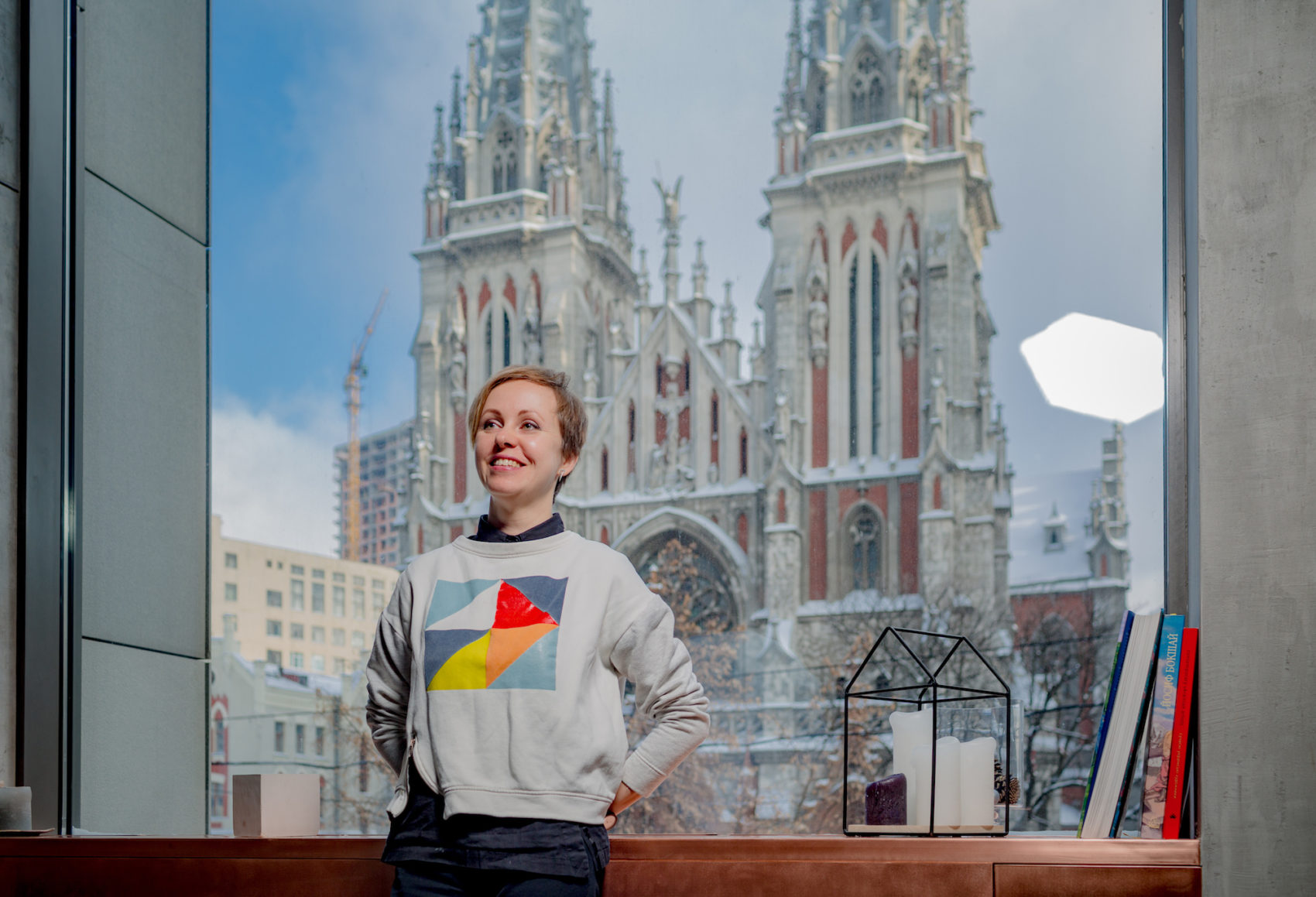
If you were 18 again, what would you do differently?
I would focus on learning foreign languages because it’s much more difficult to master them now. I would have been braver and looked for grants to study abroad because I started this just a few years ago.
Also, I would travel and live abroad to make sure that Ukraine is an interesting place to build a career and a life. Even from the point of view of geopolitics, we have an interesting future. If you know exactly what you want, then all the stars will align.
Do you read a lot?
I’m not trying to binge-read a lot of books, so I read when I have time. One of the last books I’ve really enjoyed was “The Medici Effect” by Frans Johansson. It’s a book about innovation, creativity and the Renaissance period. The book is about being at an intersection, a place where ideas from different industries and cultures collide, and being able to create something innovative in such conditions.
In my opinion, Ukraine is also at an intersection. We are deeply immersed in the process of constant and different changes.
Another book I really liked is a book I gave to my husband — “How to learn to cook” by Andriy Azarov. He cooks dishes from different countries and describes the cooking process. I don’t really enjoy spending time in the kitchen, but when you cook a dish from a country you’ve never been to, you try to understand why people choose those particular ingredients and what they’re trying to convey via this cuisine. And afterwards, you can discuss your thoughts while having dinner with friends. I like looking for insights that don’t seem too obvious.

